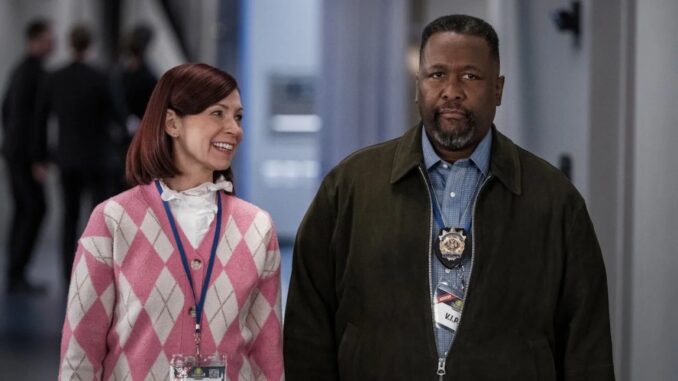
The moment Elsbeth Tascioni first appears on screen, a peculiar, delightful energy ripples through the air. She’s a charming disarray of perpetually askew scarves, a gentle flutter of hands, and a mind that seems to operate on an entirely different frequency. Yet, beneath the delightful quirkiness lies a steel trap, a unique intelligence that sniffs out truth amidst the most convoluted lies. Carrie Preston doesn’t just play Elsbeth; she embodies a phenomenon, and her discussions about stepping into the titular role for the spinoff, Elsbeth, offer a masterclass in character interpretation, illustrating the depth and joy she brings to this beloved figure.
Preston's initial foray into Elsbeth's world in The Good Wife was a slow burn, a character who gradually, almost accidentally, revealed her brilliance. Audiences delighted in her non-linear thought process, her uncanny ability to disarm opponents with an innocent query before delivering a knockout blow. As Preston often articulates in interviews, the magic of Elsbeth lies in this precise duality: the seemingly ditzy exterior masking an astute, empathetic observer. She has frequently spoken about how crucial it was to never play Elsbeth as a caricature or a joke. Instead, her approach was always to root the character in genuine kindness and an authentic, if unconventional, way of seeing the world. This commitment, she explains, is what allows Elsbeth's victories to feel earned and her humanity to shine through.
When discussing the transition from scene-stealing guest star to leading lady, Preston reveals her thoughtful consideration of Elsbeth’s expanded role. She acknowledges the challenge of maintaining the character’s unique charm and mystery when she’s constantly in focus. Her interviews often touch on the collaborative process with creators Robert and Michelle King, exploring how to peel back layers without demystifying Elsbeth entirely. Preston has indicated her delight in exploring Elsbeth’s life outside the courtroom – her new environment in New York, her interactions with a wider array of characters, and the personal quirks that inform her professional genius. This deeper dive, she suggests, doesn't diminish Elsbeth's enigma but rather enriches it, allowing glimpses into the emotional landscape that shapes her unique problem-solving skills.
One of the most illustrative insights Preston provides is her understanding of Elsbeth’s "superpower." It’s not a photographic memory or deductive reasoning in the traditional sense, but an acute, almost childlike ability to notice patterns and details that others dismiss. Preston describes it as Elsbeth's genuine curiosity and lack of pretense, which allows her to observe without judgment, connecting disparate pieces of information that build an irrefutable puzzle. She talks about how she physically embodies this: the slight tilt of the head, the momentary pause as Elsbeth's mind processes, the sudden spark in her eyes when a connection clicks. It’s this profound understanding of Elsbeth's internal rhythm that Preston brings to her performance, ensuring that even Elsbeth’s most bizarre lines feel organic to her character.
For Preston, the Elsbeth spinoff isn't just a new job; it's a testament to the enduring appeal of a character she has nurtured for over a decade. Her discussions illuminate the joy she takes in portraying Elsbeth’s optimistic approach to a world often steeped in cynicism and crime. She sees Elsbeth as a beacon of quirky wisdom, a reminder that brilliance can present itself in the most unexpected packages. By sharing her insights into Elsbeth’s unique perspective, her core decency, and the meticulous process of bringing such a singular character to life, Carrie Preston not only talks about playing Elsbeth; she illustrates precisely why Elsbeth Tascioni is, and will continue to be, an utterly captivating television phenomenon.
